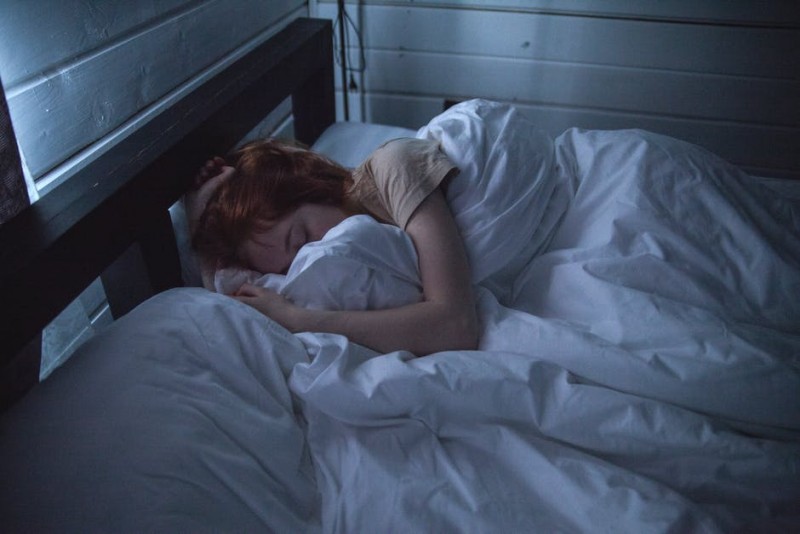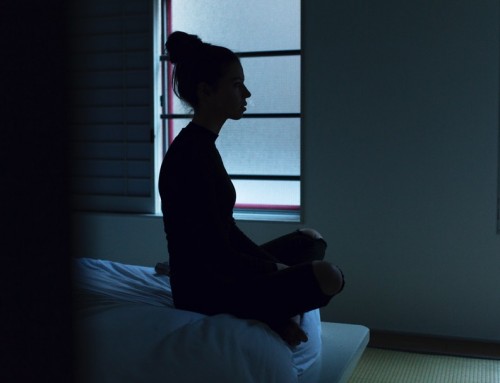Are you tired of waking up after a long night of sleep and not feeling rested? Are you tired of not getting a good night’s sleep?
Research shows that poor sleep can impact our health, safety, and ability to function in day to day life.
Unfortunately, it’s incredibly difficult for some people to manage their sleep schedule. Especially if you are used to not sleeping much, lead a hectic life, have kids, or work a job with odd hours, it can be tough to adjust your schedule.
The key to a better night’s sleep doesn’t have to be that complicated. In fact, there are a handful of little adjustments you can make throughout the day (and right before bed) that can contribute to a more restful night of sleep.
In this article, we’ll look at 7 sleep tips that can make you a more productive, happy person. Let’s dive in!
1. Ditch the Caffeine
85% of Americans drink some type of caffeine each day. While it’s a popular to drink with a number of health benefits, it can prevent a restful night of sleep.
The same effect that makes you feel more productive, focused, and energized during the day can prevent your nervous system from being able to relax at night time.
Don’t feel like you have to eliminate coffee (or your preferred caffeine source) completely. It has a half-life of about 6-8 hours, meaning that you should probably cease consumption sometime around 2 pm. This way, by the time 8-9pm rolls around, and you’re ready to start settling down a bit, the caffeine will be gone.
2. Consider Your Mattress
The old line about spending 1/3 of our lives on our mattresses comes to mind here. What type of surface are you sleeping on? Is it conducive to a good night sleep?
From soft to firm, adjustable to fixed setting mattresses, there is a sleep surface that will allow you to get a good night’s sleep. If you’re finding that difficult, maybe it’s time to invest in a new mattress before trying to come up with new ideas on how to sleep better.
Don’t sleep on the new era of natural mattresses, either. A selection of environmentally friendly mattresses made from high-quality materials takes care of the planet and a good night’s sleep at the same time. Here’s where you can find out more.
3. Ramp Up the Bright Light Throughout the Day
Bright light throughout the day helps your circadian rhythm to operate normally. Your circadian rhythm is your body’s natural ability to adjust to whether it’s day or night. Depending on what it thinks, hormones are released that allow your body to function optimally during that time.
The more bright light you get during the day, the more convinced your body will be to start “winding down” when the light leaves. After all, darkness means rest time!
4. …But Kill the Blue Light Before Bed
In our technologically driven world, a lot of people that need help sleeping at night simply just need to put their phones and screens away. Blue light emits from your TV and smartphones and kills your body’s natural circadian rhythm, which can make it difficult to sleep.
Think about it this way– the longer you use your phone at night, the longer your brain is convinced that it’s still daytime. This may be why you can’t fall asleep.
One workaround would be to download an app like f.lux. Apps like this remove the blue light from your screen by slightly tinting it a new color, allowing your body to naturally drift into night time.
But keep in mind, if you’re doing stressful work right before bed on your smartphone or laptop, an app isn’t going to help!
5. Try Melatonin
If you’re really looking for how to get a good night’s sleep, and can’t seem to find a solution, perhaps melatonin would be a good supplement to try. Melatonin helps to control sleep cycles, which will allow you to drift into a deeper sleep once you get to sleep, and it will also help you get there quicker.
While supplements can help, it might be best to try the other tips on this list first, or just a cup of nice calming tea and a book. But if you really need sleep, it might be the way to go!
6. Nap, But Not for Too Long
The benefits of napping during the day have been studied extensively. But the truth is, if you’re sleeping for multiple hours during the day, it might be difficult to unwind at night.
Limit your naps to 30 minutes or less (if you’re one of the fortunate ones able to take a nap, that is), so you aren’t taking away from your nighttime sleep.
7. Set a Sleep Schedule
The human body is an adaptable machine. It can really adjust to most things you throw at it, including erratic sleep schedules.
But an erratic schedule might be why you can’t sleep. Research shows that shutting it down at the same time each night deepens your sleep cycles and can help people fall asleep faster.
Basically, pick a time and stick to it. Unwind 20-30 minutes before and make yourself stay in bed until you fall asleep. It might take some adjusting to, but the science says it’s worth it.
A Good Night’s Sleep – Wrap-Up
The truth is, a good night’s sleep should be a part of your lifestyle. But it’s so important for your health and productivity that it’s not something you should “sleep” on. (Sorry, we had to).
Before you start getting frustrated, there are a number of simple tips you can implement to help get to sleep and stay there. Drink less caffeine, consider the surface you’re sleeping on, use bright lights during the day and kill them at night, use melatonin (or tea), take short naps, and set a sleep schedule you can stick to.
Want to be happy, beautiful, and stylish? Here’s where you can learn more about us. Thanks for reading!











